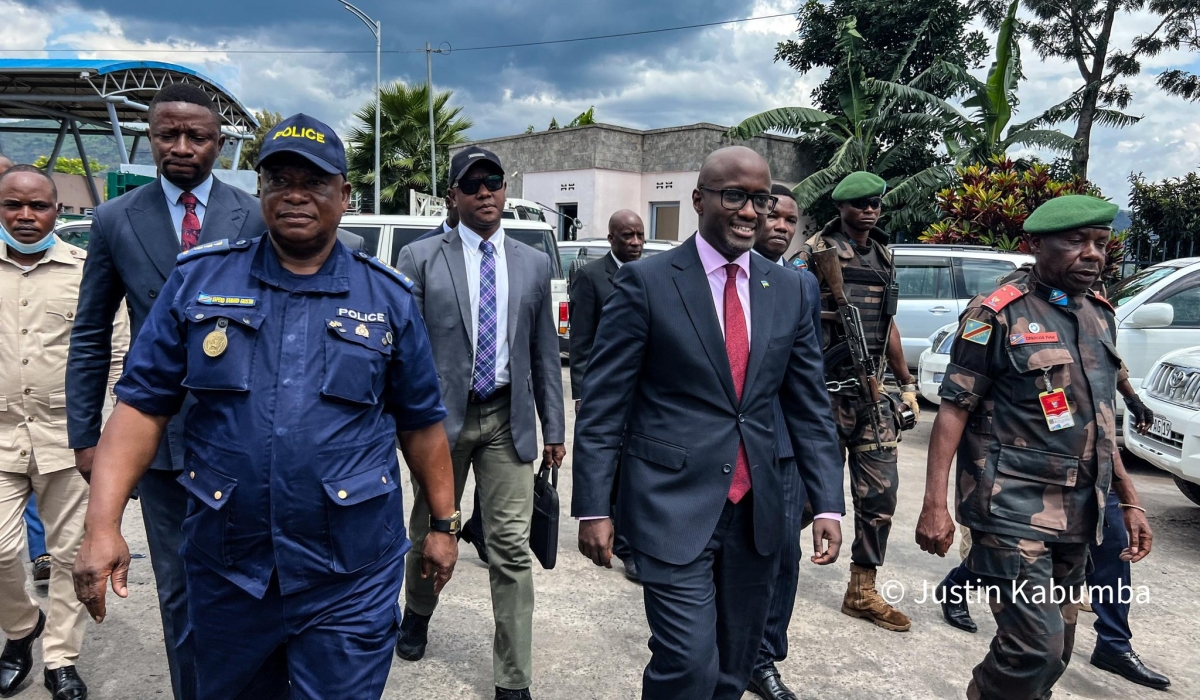The foreign ministers of Rwanda and the Democratic Republic of Congo (DR Congo) met Tuesday, Nov. 5, at the shared border to discuss peace and security in eastern DR Congo as part of a tripartite meeting under the Luanda process, an African Union-backed initiative.
The Luanda process, launched in mid-2022, seeks to ease tensions between Rwanda and DR Congo, which have flared over ongoing fighting in eastern DR Congo between the Congolese army and M23 rebels.
The meeting, held at the Grande Barrière border post, was chaired by Angolan Foreign Minister Téte António and attended by Rwandan Foreign Minister Olivier Nduhungirehe and DR Congo’s Foreign Minister Théresé Kayikwamba Wagner.
The talks focused on improving security in the volatile region, which has been plagued by armed conflict involving both state and non-state actors. DR Congo accuses Rwanda of supporting the M23 rebels, a claim that Rwanda denies. Kigali argues the conflict stems from DR Congo’s internal governance issues and the persecution of Congolese Tutsi communities.
Rwanda has raised concerns about the integration of the FDLR, a militia with links to the 1994 genocide against the Tutsi in Rwanda, into the Congolese army. The FDLR is part of a broader coalition of forces fighting the M23 rebels in eastern DR Congo. Rwanda says the FDLR not only threatens its own security but also destabilizes the wider Great Lakes region through its involvement in spreading genocide ideology.
In a previous meeting in Luanda on October 12, Nduhungirehe outlined three steps to resolve the crisis. First, he called on the Congolese government to “take ownership” of the conflict and stop blaming Rwanda at international forums. Second, he urged DR Congo to neutralize the FDLR, which he said is embedded within the Congolese army and spreading genocide ideology. Finally, he recommended the withdrawal of Burundian and SADC (Southern African Development Community) forces from the region.
The two countries’ continued diplomatic efforts come amid escalating tensions and an urgent need for a sustainable resolution to the ongoing security crisis in eastern DR Congo.

